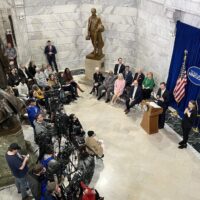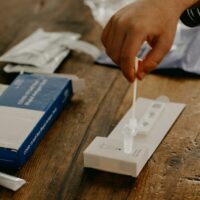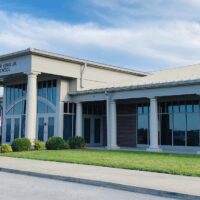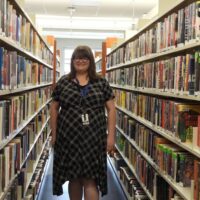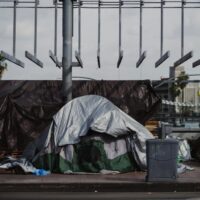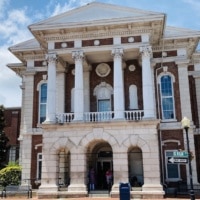Churches, by their very nature, are places where people congregate.As the remaining capacity limits of the pandemic are lifted later this month, some western Kentucky church leaders reflect on the unprecedented challenges that social distancing brought to their communities.
The realization that things wouldn’t be normal first struck in March 2020 when churches quickly had to determine how they would safely deliver sermons to church members. Broadway United Methodist Church in Paducah attempted to meet in person only a handful of times during 2020.
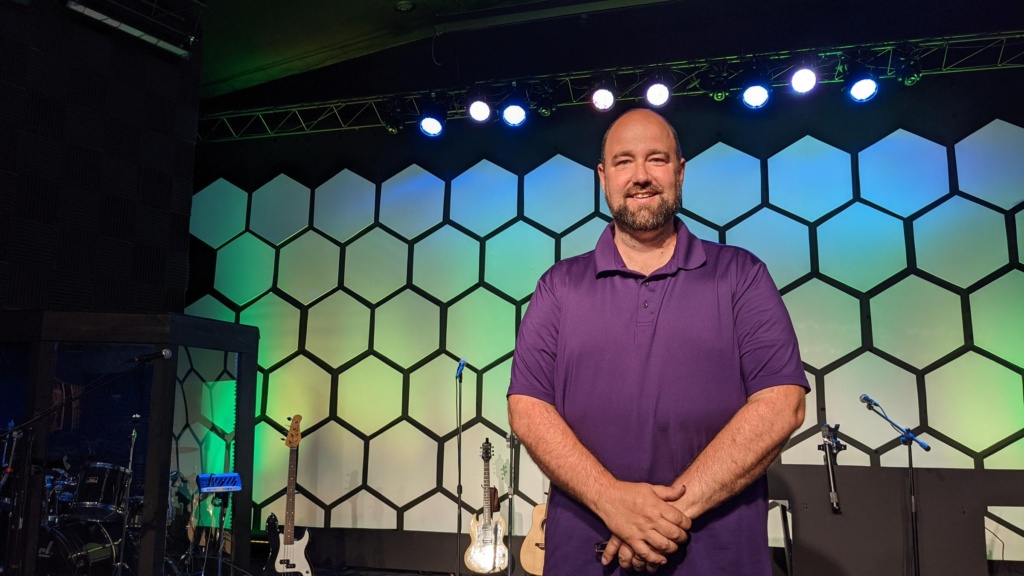
“We were watching the news and watching everything as it was unfolding,” Pastor Luther Ray Chandler said. “I put together a team of folks as soon as I could to be able to help navigate and make the decisions. I called them my ‘reopening team.’”
Chandler noted the congregation, composed of older people and families, understood the gravity of the situation.
“I think, with the unknown, they were scared,” he said. “We didn’t have any pushback when we started [remote worship], so I think everyone was pretty much on the same page.”
Adjusting To Limitations
Ricky Cunningham, pastor at Hardin Baptist Church in Marshall County, said the congregation didn’t meet following the governor’s initial stay-at-home order in March of 2020 until about mid-July, going fully online during that time.
“Primarily because of the size of our congregation, we just felt, as big as our church family is, there was just a better chance someone could have it and spread it to someone,” Cunningham said. “And we just wanted to love the community but also love each other and not spread it.”
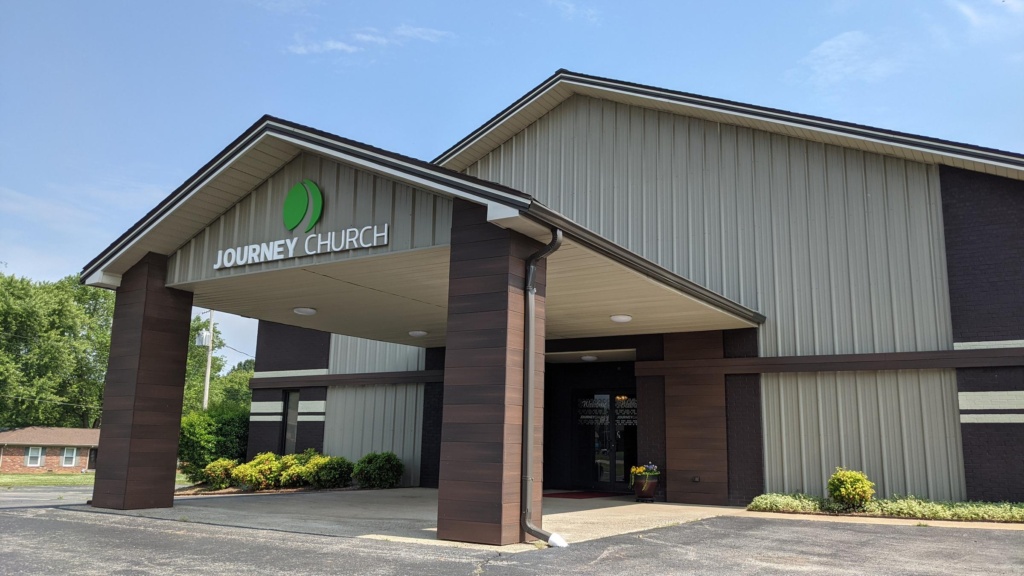
Hardin Baptist had previously only broadcast services via radio, so transitioning online posed a challenge. Cunningham’s son, Associate Pastor Kory Cunningham, alongside a “tech team” quickly brought the church into the digital age.
Journey Church in Hopkinsville had already offered an online service “for years” before the virus struck, said Pastor Vince Farrell, so what he instead found difficult was witnessing the effects of solitude on one especially wary family in his congregation.
“Because of certain situations in their own life, they were taking, what I believe, their rightful cautious steps,” Farrell said. “Maybe, in my humble opinion, too cautious, because what it did is it caused seclusion. And that’s one of the devastating things we’ve heard all across our nation is people battling with depression because of seclusion, because of not being in fellowship with people and humanity and that personal touch.”
Coming Back To Church
Even after resuming in-person services, certain elements of church life had to be reworked. Hardin Baptist reduced its capacity nearly in half to accommodate six-foot social distancing, enforced a mask mandate, cleaned surfaces in between services and stopped serving refreshments in the foyer. These decisions were based on the latest Centers for Disease Control and Prevention (CDC) and state guidelines at that time, as well as the advice of five medical doctors in the church.
“In the beginning, before vaccinations were available, I felt like, as a church and as Christians, we should all try to protect those who were more vulnerable,” Cunningham said. “So that’s the reason we wore the masks.”
Pastor Neely Owen with the Hopkinsville-based Faith Lutheran Church paused services for a “couple of Sundays” when the virus first hit but “felt that it was important to continue to maintain” in-person fellowship, albeit at 50% capacity. The church roped off some pews, encouraged face masks, and temporarily halted its Sunday school program.
“We do believe in the actual presence of Christ himself during the service, in word and sacrament, and people are actually fed by these things, and you don’t get that off of a TV screen,” Owen said. “You get that in the fellowship of believers, in the body of believers.”
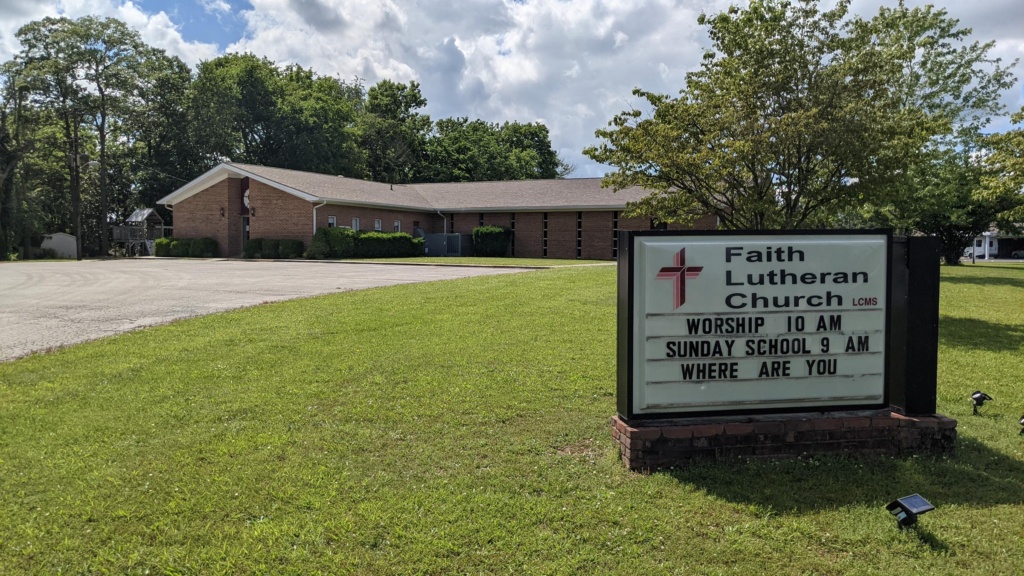
Owen said meeting the requirements of the government and ensuring people feel protected were some of the unique difficulties the church faced when reopening.
“You want to make sure that you’re showing the public that come to visit at your facility that you’re doing everything you can to make the environment safe, and not only comfortable but safe, and one in which they don’t have to worry,” Owen said. “They can focus on worshipping instead of being concerned whether they’re going to be catching the disease.”
Journey Church went fully online for two months before resuming its regular service with socially-distanced seating and optional mask wearing. To gauge the needs of its congregation, the church offered color-coded bracelets for members to indicate their personal comfort level with in-person worship.
“Green was, ‘I feel great; I feel comfortable talking to you face-to-face,” Vince Farrell of Journey Church said. “Yellow is, ‘I’m trying to keep my social distance.’ And red was, ‘I’m here, but stay away from me. I’m not comfortable.’ Out of the three months that we did that, I think we might have had the most, at the peak, maybe five reds. Everyone else was green and with a few sprinkled yellows here and there.”
Seeing The Bright Side
Despite these hardships, the pandemic yielded some unexpected positive results for these western Kentucky churches. Not having as many in-person activities enabled Hardin Baptist to divert more funds to missionary work in foreign countries such as Nicaragua, Brazil and Malawi in addition to local outreach.
“Every Wednesday night, we just had a drive-through, and we would hand families drinks, chips and pizza,” Cunningham said. “We could feed the city of Hardin every Wednesday night. We did that for about four months. It was just absolutely phenomenal.”
Some families who discovered Hardin Baptist services online started attending the church in person once they were able. Cunningham attributed his congregation’s resilience and resilience in other churches to their “strength” prior to pandemic.
“Because Hardin has a lot of small groups, because we’re a closely connected congregation, even though we’re a larger congregation, we’re still connected,” he said. “Everybody that comes to Hardin has relationships. So we just checked on each other and actually grew, in many ways, closer and stronger during the pandemic.”
Throughout the pandemic, Neely Owen of Faith Lutheran Church visited those who could not physically come to church, which contributed to a sense of community among the congregation.
“I can’t think of anything more essential in a time of pandemic and mass death than for someone’s spiritual life to be front and center, and people began to recognize that,” Owen said. “So those for whom it was never important and weren’t able to value that, and I think they had to find other ways to go ahead and find support and encouragement. But for those who found this an essential part of their lives, it became even stronger and more important to them.”
Feeling At Ease
With time, more and more churchgoers came back to their places of worship. Anecdotally, Owen noticed many unvaccinated individuals didn’t feel comfortable in group settings, “mask or no mask,” before the vaccine became more widespread.
“Noticing their attendance increase, their demeanor, everybody’s got a little more pepper in their step, if you know what I mean,” he said. “People are just glad for things, to be able to see the light at the end of the tunnel.”
- SUBSCRIBE: Sign up for Hoptown Chronicle’s newsletters
Owen is leaving the choice to get vaccinated in church members’ hands.
“I became vaccinated as early as I could get it, and I made it very clear that I did, and I was not afraid of it, so people lead by example,” he said. “You can’t tell somebody to do something. You can show them that it’s important to you, and if they value your opinion, then it may have some impact on them.”
Farrell of Journey Church said he doesn’t discuss vaccination “from the pulpit,” preferring congregation members learn the facts independently.
“We don’t have political discussions; we don’t have COVID-19 discussions,” he said. “As a pastor, my job is to help them on their journey, and if they want to come to me individually and personally, I’ll try to give the best counsel I can, but I’m always a pro for people making their own choices based on what best fits them in the confines of what they believe God is directing them.”
Hardin Baptist lifted its mask requirement on May 16, 2021, which Cunningham said has encouraged more people to worship in-person instead of online.
“As we’ve started taking the masks off, like this week, I’ve got several families telling me that, ‘Hey, we’ll be there Sunday,’” he said. “Because we’ve had some families that it’s inconvenient for them to be a part of sermons with a mask on.”

